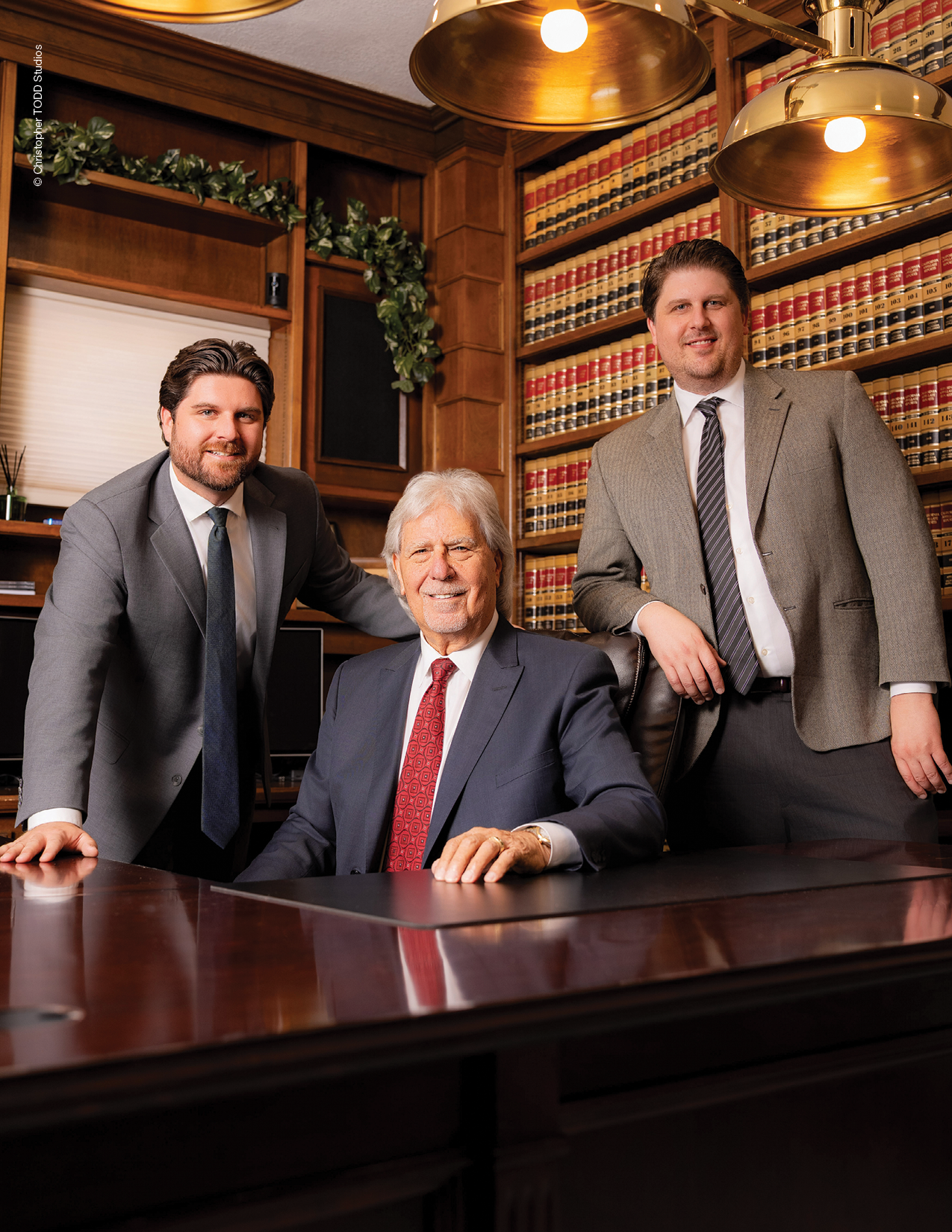Ryan McKeen is a co-founder of Best Era, LLC. Ryan’s extensive background as a lawyer and law firm owner drives his commitment to helping the legal community thrive. Ryan is dedicated to enriching the legal field by sharing insights from his experience. He co-authored the best-selling books “Tiger Tactics: Powerful Strategies for Winning Law Firms” and “CEO Edition,” and regularly speaks at national legal conferences on topics including innovative marketing, artificial intelligence, law’s future, and effective management. Learn more at www.bestera.io.
Will Your Law Firm Exist in Five Years?
The legal profession is standing at the edge of a radical transformation. Technology, shifting client expectations, new business models, and the accelerating pace of change are exposing a critical question: Will your law firm exist in five years?
At Best Era, LLC, we consult with clients around the world and begin by asking them where they want to be in five years. If you aren’t thinking about five years from now, you should pause, and spend some time doing so.
This isn’t just a rhetorical question. It’s one that demands sober, strategic reflection. The truth is that many firms won’t survive, not because they weren’t competent or profitable, but because they failed to adapt.
If you’re leading a law firm, here are seven key questions that will determine whether you’ll still be in business half a decade from now.
1. Why Does Your Firm Exist?
If you can’t answer this question clearly and persuasively, you’re already in trouble.
Too many firms define their existence by inertia: We’ve always been here. Or circumstance: We signed a 10-year lease. Or comfort: We’re still making money. These are not reasons—they’re symptoms of complacency.
A firm that wants to thrive must have:
- Well-defined values that serve as a compass in turbulent times.
- A clearly defined niche, because “we do everything” no longer works in a world of specialization and rapid information access.
- A value proposition that evolves, rooted in solving real problems in unique ways.
If you don’t know why your firm exists beyond paying salaries and overhead, your future is up for grabs. The firms that will survive are mission-driven, nimble, and clear on their why.
2. Why Would Anyone Work for You?
If your answer is “money,” you’re in serious danger.
The legal workforce is shifting. Lawyers, especially younger ones, are increasingly driven by meaning, impact, lifestyle, and growth. Yes, they want to be paid fairly—but they also want:
- Purpose-driven work.
- Opportunities to innovate and lead.
- Work-life integration, not just work-life balance.
- Transparency and autonomy.
In the age of remote work, digital tools, and widespread entrepreneurship, it’s never been easier for a talented lawyer to go solo. If your culture is built solely around compensation, you’ll find yourself in a constant cycle of turnover and talent drain.
Firms that win in the next five years will create environments people want to be part of—because of how it feels, what it stands for, and what it enables.
3. Are You Hiring for the Skillsets of the Future?
The skills that made a great lawyer in 2010 are not the same ones that will define success in 2030.
Traditional legal education emphasized:
- Deep legal research.
- Meticulous writing.
- Adversarial thinking.
Those skills still matter, but they’re no longer sufficient. Today, forward-thinking firms are hiring for:
- Project management expertise—because legal matters increasingly resemble complex operations.
- AI fluency—understanding how to prompt, audit, and collaborate with artificial intelligence tools.
- Client experience design—because value is judged not just by outcomes, but by process and communication.
If your hiring is rooted in resumes and class ranks alone, you’re missing the moment. Firms of the future need people who can build, adapt, and lead in uncertainty.
4. How Strong Are Your Community Relationships?
Law is a trust-based profession. And trust is built through proximity, consistency, and value.
Firms that operate in a vacuum, rarely engaging with their community, industry, or niche—are out of touch and at risk.
Ask yourself:
- Are we showing up where our clients and peers are?
- Are we listening to what they care about?
- Are we giving back in meaningful ways?
Whether it’s through thought leadership, nonprofit partnerships, pro bono efforts, or local presence, community is your moat. Weak relationships mean weak referrals, poor retention, and diminished brand strength.
5. Is Your Business Model Built for a Post-Billable-Hour World?
The “death of the billable hour” has been written about for decades. But today, it’s finally on life support.
Why? Because AI, automation, and process optimization are collapsing the time it takes to deliver legal work. Tasks that used to take three days now take 30 minutes.
If you’re billing by the hour, you’re incentivized to be slower, not smarter. Clients are noticing.
The future belongs to firms that:
- Offer value-based pricing.
- Bundle services with subscriptions or flat fees.
- Use data and transparency to build trust, not mystery.
If your margins depend on dragging out routine work, your model is in jeopardy. Start rethinking value, not as time spent, but as problems solved.
6. Are You Ready for a Leveled Playing Field?
The tools of BigLaw are no longer exclusive.
A solo practitioner armed with Westlaw AI, a decent case management system, and a smart strategy can now:
- Draft contracts at scale.
- File complex litigation.
- Deliver 24/7 client updates.
This is a tectonic shift. Technology is democratizing legal services. You don’t need a floor of associates and paralegals to compete anymore—you need leverage and precision.
This means:
- Rethinking your firm’s cost structure.
- Redesigning workflows for maximum automation.
- Competing on strategy and insight, not brute force.
Legacy is no longer a moat. Agility is.
7. Can You Justify Working at Your Firm?
Let’s say you’re a talented associate or even a partner. You’re watching AI eat time, remote work untethering geography, and legal entrepreneurs thriving with minimal overhead.
Why stay?
That’s the question your current and future lawyers are asking. If you want to retain and attract top talent, you’ll need answers like:
- “Because we offer growth and mentorship you can’t get elsewhere.”
- “Because our platform helps you scale your impact.”
- “Because we make it easy to do your best work without burning out.”
Gone are the days when security and tradition were enough. Today’s legal professionals want alignment, innovation, and freedom. And if they don’t get it from you, they’ll go build it themselves.
Conclusion: Five Years Is Closer Than You Think
This isn’t alarmism—it’s realism. Law firms that thrive in the next five years will not be the biggest or the most prestigious. They will be:
- Mission-aligned.
- Tech-enabled.
- Client-centered.
- Talent-smart.
If you’re not actively evolving in those directions, the clock is ticking.
Start with the hard questions. Build from first principles. And above all, don’t assume you’re safe just because you’re profitable today.
The winds have shifted. Make sure your sails are set.








